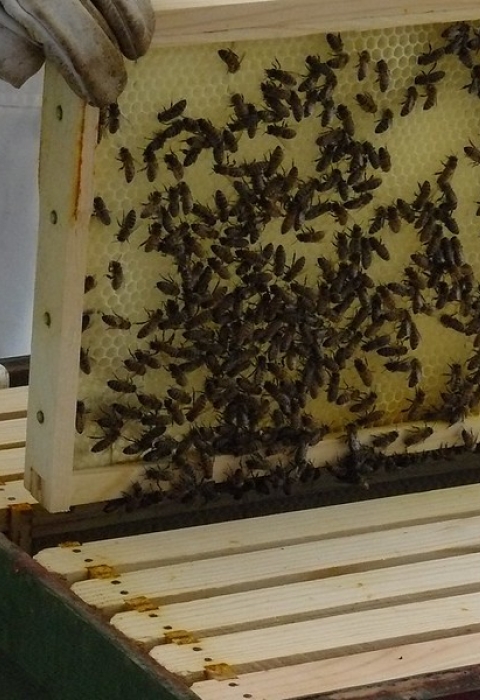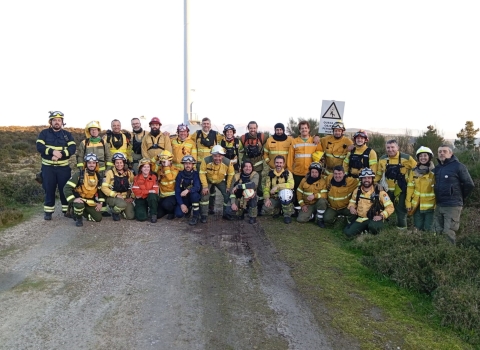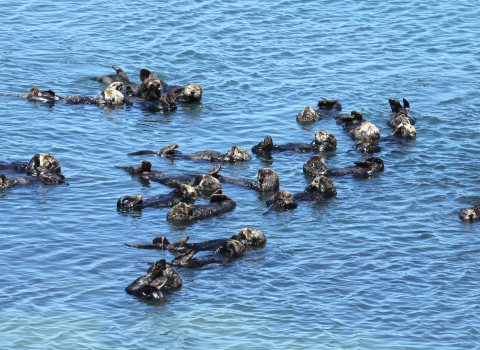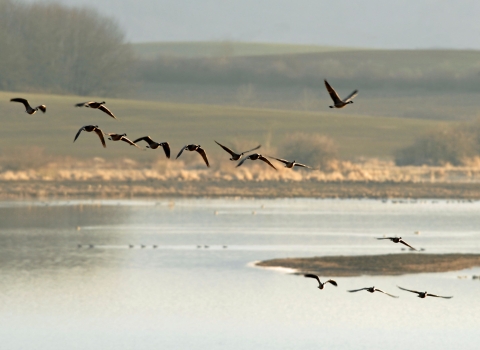This article was collaboratively written with Melanie Kirby herself. Many thanks for her consultation, collaboration, and storytelling.
What comes to mind when you hear the word “paradise”? Perhaps it’s a scenic trip somewhere new, the Edenic beauty of a green space, the calming renewal of a coastal getaway. For many of us, paradise is a place we go, an escape from the everyday. But what if paradise was not a destination but a practice?
For Melanie Kirby, co-founder of Zia QueenBees, paradise is just that.
“I grew up here [in New Mexico] and left for ten years. I chose to come back. When you come back to your sense of home you get a chance to manifest paradise”
Melanie, a member of the Tortugas Pueblo Tribal community, grew up in Southern New Mexico, deeply rooted in her pueblo. Today, she practices paradise through a place-based approach to stewardship that focuses on kinship with pollinators. She applies an interdisciplinary approach to community education, tells the story of her Indigenous ancestry and values through her work.
Thank a Pollinator week highlights the importance of relationships, reciprocity, and gratitude that can flourish between people and pollinators. Between 75% to 95% of all flowering plants on Earth depend on pollinators to thrive. In turn, we can credit 1 out of every 3 bites of food we eat to the help of pollinators, like honey bees. As our world faces increasing challenges to our ecosystems and human systems, pollinators face a greater plight than ever.
For Kirby, early dreams of DJing in San Francisco gave way to an entirely new trajectory when she took on a position with the Peace Corps working with Indigenous bee farmers in Paraguay. Kirby was impressed and moved by how these farmers integrated ancestral knowledge into their pollinator stewardship practices. After her work with Peace Corps, Melanie continued to develop her skills as a professional beekeeper by working in the field for several commercial beekeeping outfits in the U.S. After working for them for 8 years, Kirby sought to find how she could do this work in her own way. She teamed up with a fellow professional beekeeper and they established a bee breeding farm in the southern Rocky Mountains of northern New Mexico in 2005. After 20 years in the field full-time, Melanie decided to obtain a masters in entomology. Her experiences in a very male dominated field encouraged her to uplift the voices of marginalized farmers and communities.
For Kirby, the landscape and an intergenerational sense of belonging shaped her approach profoundly. “When I look at the cultural component, this region is very steeped in traditions of living history. It’s still here, it’s very palpable. It’s not just seen in a book or a video. You’re walking through it. The cultural stewardship practices are very much still alive. These practices have always been here. This has really shaped the way I look at my stewardship. I’ve come to really respect those varying approaches and have seen firsthand these threads of continuity. This takes a philosophical role in how I manage my bees as part of a larger continuum of stewardship and intergenerational knowledge transfer.”
In 2005, Melanie co-founded her bee farm Zia QueenBees Farm & Field Institute on the High Road to Taos which is nestled between mountain communities of both Indigenous and Hispanic ancestry. Zia Queenbees Farm & Field Institute is small-scale bee breeding operation that focuses on environmental adaptivity and kinship with the bees rooted in Kirby’s Indigenous sense of place.
“You can't know a bee without knowing her environment. Finding the bees that do well in particular environments and nurturing them without exploitation is rooted in a shared Indigenous world view of interconnectedness.” says Kirby, describing her operation.
For Melanie, a sense of place grounds her work and sense of purpose. “We have 7 out 8 biomes, save for coast. This makes my work very dynamic. Nature is dynamic. It teases us. For those of us who like that, this becomes a thrill...I get to marvel, to stand in wonderment that transcends age, gender, and cultures. The beauty of this is that this wonderment and this paradise can be nurtured anywhere.”
No matter who you are or where you are, you are part of an ongoing story.
A story based on our relationships with diverse ecosystems and the pollinators that make our lives possible. The pollinators that feed us, teach us. They teach us how to manifest paradise by investing in our shared homes. Paradise looks different for all of us, but the beauty of this is that we can choose to participate in its unfolding.
What might paradise as a practice look like for you? This Thank a Pollinator Week, share your stories with family and seek out stories in your community. Express gratitude through storytelling, acts of reciprocity for pollinators, and create paradise for the pollinators and you.




